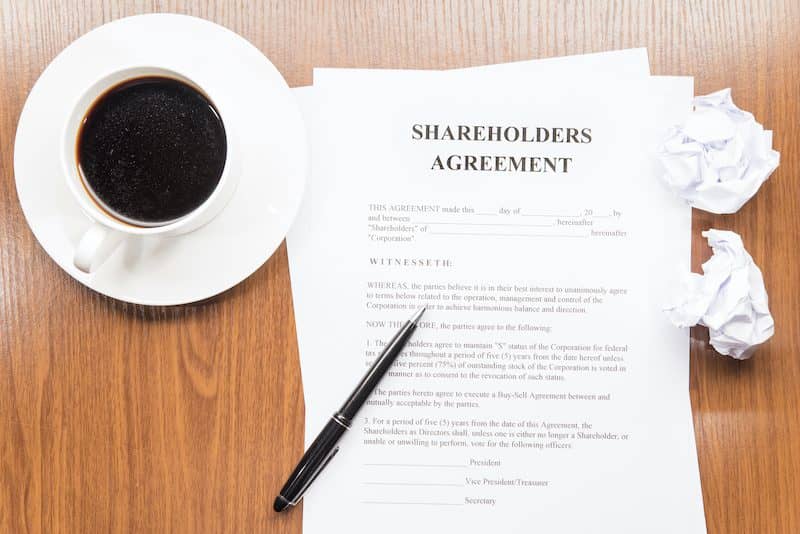Starting with the basics, a shareholders’ agreement is a private contract between the shareholders of a company which sets out their rights and responsibilities as between them. It is not a compulsory document nor is it public. There is no set precedent and it can, within reason, contain whatever the parties wish it to contain.
The main purposes of a shareholders’ agreement is to prevent future conflict – the rationale being that whilst the shareholders are not in dispute, they agree the terms on which they will deal with future situations which may be the source of disagreement. The financial advantage In the long term is enable shareholders to realise the maximum value from their investment.
As a minimum, a shareholders’ agreement should cover matters such as:
- The amount of time each party is to spend working for the company;
- The extent to which shareholders may have other interests besides the company;
- A list of decisions that the directors can make without reference to the shareholders (some of which may be by reference to expenditure for example);
- A list of decisions that must be referred to the shareholders;
- What happens if a shareholder decides to sell his shares (which may include a right of first refusal to other shareholders);
- Situations in which a shareholder can be compelled to give up his shares;
- What happens if a shareholder dies; and
- Shareholders’ rights to dividends.
Whilst all is often harmonious between shareholders when you start your involvement in a company, it can often be the case that unexpected events cause disagreement between the parties. A shareholders’ agreement is intended to provide a mechanism for dealing with dispute and avoiding uncertainty in the future. Therefore, whilst it might not seem necessary at the outset, a shareholders’ agreement will serve you well as an insurance policy for the future and even if there is no dispute in the future it will be a useful tool for regulating the parties’ involvement in the company.
If you need help with a shareholders’ agreement, please get in contact with our team of experts, who’ll be more than happy to assist.



